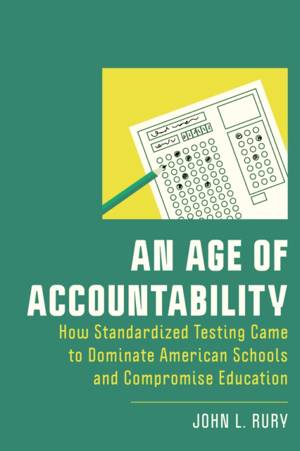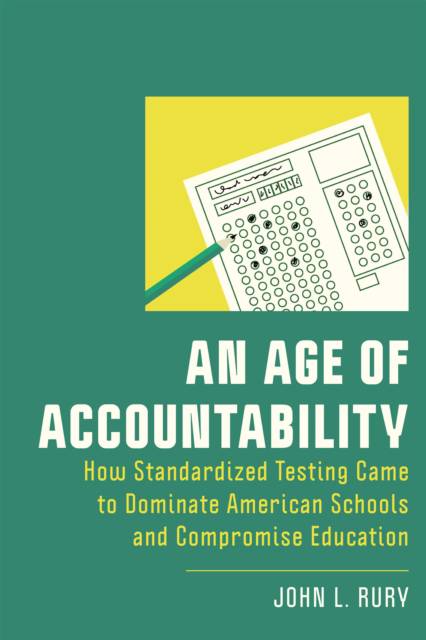
Door een staking bij bpost kan je online bestelling op dit moment iets langer onderweg zijn dan voorzien. Dringend iets nodig? Onze winkels ontvangen jou met open armen!
- Afhalen na 1 uur in een winkel met voorraad
- Gratis thuislevering in België vanaf € 30
- Ruim aanbod met 7 miljoen producten
Door een staking bij bpost kan je online bestelling op dit moment iets langer onderweg zijn dan voorzien. Dringend iets nodig? Onze winkels ontvangen jou met open armen!
- Afhalen na 1 uur in een winkel met voorraad
- Gratis thuislevering in België vanaf € 30
- Ruim aanbod met 7 miljoen producten
Zoeken
An Age of Accountability
How Standardized Testing Came to Dominate American Schools and Compromise Education
John L Rury
€ 173,45
+ 346 punten
Uitvoering
Omschrijving
An Age of Accountability highlights the role of test-based accountability as a policy framework in American education from 1970 to 2020. For more than half a century, the quest to hold schools and educators accountable for academic achievement has relied almost exclusively on standardized assessment. The theory of change embedded in almost all test-based accountability programs held that assessment with stipulated consequences could lead to major improvements in schools. This was accomplished politically by proclaiming lofty goals of attaining universal proficiency and closing achievement gaps, which repeatedly failed to materialize. But even after very clear disappointments, no other policy framework has emerged to challenge its hegemony. The American public today has little confidence in institutions to improve the quality of goods and services they provide, especially in the public sector. As a consequence, many Americans continue to believe that accountability remains a vital necessity, even if educators and policy scholars disagree.
Specificaties
Betrokkenen
- Auteur(s):
- Uitgeverij:
Inhoud
- Aantal bladzijden:
- 246
- Taal:
- Engels
- Reeks:
Eigenschappen
- Productcode (EAN):
- 9781978832282
- Verschijningsdatum:
- 13/10/2023
- Uitvoering:
- Hardcover
- Formaat:
- Genaaid
- Afmetingen:
- 152 mm x 229 mm
- Gewicht:
- 480 g

Alleen bij Standaard Boekhandel
+ 346 punten op je klantenkaart van Standaard Boekhandel
Beoordelingen
We publiceren alleen reviews die voldoen aan de voorwaarden voor reviews. Bekijk onze voorwaarden voor reviews.











